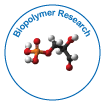当社グループは 3,000 以上の世界的なカンファレンスシリーズ 米国、ヨーロッパ、世界中で毎年イベントが開催されます。 1,000 のより科学的な学会からの支援を受けたアジア および 700 以上の オープン アクセスを発行ジャーナルには 50,000 人以上の著名人が掲載されており、科学者が編集委員として名高い
。オープンアクセスジャーナルはより多くの読者と引用を獲得
700 ジャーナル と 15,000,000 人の読者 各ジャーナルは 25,000 人以上の読者を獲得
抽象的な
Biodegradation of Biodegradable Polymers
Abdu Rozaik
In order to make biodegradable polymers simpler to dispose of after use without affecting the environment, researchers are becoming more interested in creating them through chemical processing, microbes, and enzymes. Biodegradable polymers encountered a number of problems as they progressed towards becoming useful materials. The handling of biodegradable polymers, composites, mixing, and modelling are all discussed in this article. Biodegradable polymer evaluation and environmental destiny are covered in depth. Investigations are made into the forensic engineering of biodegradable polymers and the connections between their structure, characteristics, and behaviour before to, during, and following practical uses.
Finding methods to reduce plastic pollution has emerged as one of the major issues facing modern society. A few alternatives have the potential to modify the way we think about and use plastics in ways that are more circular and sustainable. One workable solution to the drawbacks of using and disposing of non-biodegradable polymers is the development of biodegradable polymers from fossil and bio-based sources. The polymer characteristics, environmental circumstances, microorganisms, and associated enzymes all have a role in the biodegradation process, which is dependent on all of these variables. As a result, biodegradation times and rates can vary greatly. With a focus on the mesophilic range, this review seeks to give background information and a thorough, methodical, and critical assessment of this complex process. Discussions include extracellular enzyme activity towards depolymerization, the impact of biofilm on the dynamics of the degradation process, the evolution of CO2 as a measure of the degree of biodegradation, and metabolic pathways. With a focus on the current knowledge gaps, suggestions and perspectives for prospective future study are offered with the intention of minimising the persistence of plastics across habitats. Modern techniques that require faster development include bio-stimulation, bio-augmentation, the addition of natural and/or engineered enzymes, and the addition of specialised substances to cause de-polymerization under specified circumstances. Methods also need to be linked to techniques and standards that thoroughly monitor the biodegradation process [1-5].

 English
English  Spanish
Spanish  Chinese
Chinese  Russian
Russian  German
German  French
French  Portuguese
Portuguese  Hindi
Hindi